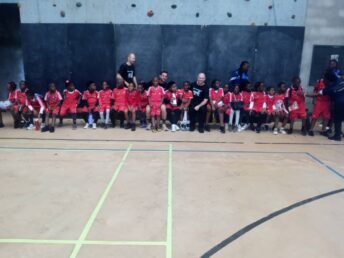The job interview is one of the biggest reasons for tension in a selection process for a job vacancy . Knowing what to say and what not to say to impress the recruiter is a big challenge. In this way, we separate a list of questions with tips to help you prepare and reach this stage more safely. Check it out.
I got a call for a job interview. Now what?
Your CV matched the basic job requirements, you performed amazingly in the selection tests, and you proved to be one of the ideal candidates for the job. Then it was time for the final and most dreaded phase: the job interview.
Are you prepared for this step? Do you know what to do to impress the human resources team?
Don't worry! After all, the job interview is not a seven-headed animal.
Of course, you'll do just fine if you're prepared and answer the questions confidently.
That way, we've separated a list to help you prepare. This list contains questions with tips on how to behave to impress not only the recruiting team, but also your future employer.
Read until the end, as we have also prepared 3 extra and valuable tips that you cannot miss.
What to say in a job interview
The joy of receiving a call for a job interview is accompanied by endless anxiety. After all, you only have a few minutes to impress the recruiter, demonstrate your worth and win the job.
In a job interview, there are questions and answers of different types. However, there are no right or wrong answers, as the recruiter intends to assess very subjective questions at this stage of the selection process.
On the other hand, there are answers that can compromise your evaluation. There are also answers that can attract the evaluator's attention and give you extra points at the end of the process.
Thinking about this, we created a series of tips based on questions and answers to help you prepare and demonstrate an excellent performance in the job interview.
Check it out below and happy reading!
Tell me a little about you?This question is usually asked right at the beginning of the job interview and is very important. Yeah, what you say can influence your entire interview.
That is, if you do well in this question, you will capture the recruiter's attention and take him to the end. On the other hand, if you answer this question without confidence, you will lose the recruiter's attention.
And with that, your chances of winning the vacancy go with the evaluator's interest.
This questioning is done in a more informal way. It is the famous “breaking the ice”. And you should see it as an opportunity to “sell yourself”. In addition, it is where you will address the most important aspects of your professional experience and describe yourself as a worker.
Self-knowledge here is extremely important. And to answer this question well, at home and in a moment of your own, ask yourself the following questions:
- Do I know exactly who I am?
- Where do I want to go?
- What is the main point of my story?
- What message do I want to pass?
- What would I highlight in my trajectory as the most important point?
- What makes sense to me?
- Ultimately, will my entire pitch convince the recruiter of who I really am?
These questions will surely guide you to an answer that you will be proud of in the end.
But beware of dwelling too long on this matter.
Create two versions: a one-minute story in case the recruiter limits your time or asks you to tell if you about yourself in a few words.
And another longer one of a maximum of five minutes, if the recruiter does not limit his speech.
Also, it's important that it has a beginning, middle and end. If the ending is negative, state what your main learning was.
Why should we hire you?
Understand that if you don't know why the recruiter should hire you, the recruiter probably won't either.
The main purpose of this question is to assess whether your profile as a candidate is ideal. That is, it is at this moment that the evaluator will observe whether his thinking is aligned with that of the company.
One more homework assignment: again researching the company is important, and try to answer:
- How can I contribute to the company?
- Does the vacancy meet my expectations?
- What sets me apart from other candidates?
- Have I faced any significant challenges? Or have I already changed some process that worked better?
- How do I pursue and seize opportunities?
- How do I accomplish something beyond what was predicted?
- What do I want to show this company?
Finally, don't be afraid to sell yourself and show what your achievements were.
Analyze the vacancy well, check what the technical and behavioral skills are and align with your answers.
Also, try to show the company that you care about their bottom line. Show empathy and align with your story.
What makes you wake up every day to work?
Through this question, the evaluation tends to find out if the candidate is capable of carrying out the work. That is, if you have the necessary motivation to develop a job with quality.
After all, the company wants a result-oriented professional.
To answer is simpler than you think. Prepare yourself, as with all other questions, and make a list of all your motivations.
Try to align these motivations with your role and company goals.
That way, it will be easier to answer this question assertively.
Avoid answers like: “what motivates me is the salary at the beginning or end of the month.”, or, “what motivates me is having something to offer my children”. Think more about points that highlight your professional profile, your objective and your goals.
Ask yourself: where do I want to go? Is this vision of the future enough motivation to get out of bed every morning?
How do you see yourself in 10 years?
How do you see yourself in 5 or 10 years? This question is quite common.
And when the recruiter includes this question in a job interview, basically, he wants to analyze if you have a vision of the future and if you plan, and if you intend to continue asks that company in the future. That is, if you include that company in your plans.
In addition, it is an interesting question to assess whether your goals are aligned with the company's goals.
An excellent way to answer this question is to align your ambitions with the company's growth and development goals.
To do this, do your homework: assess what your real goals are and make sure you are aligned with the company's values and mission. Therefore, prior research on the company is extremely important.
At this moment, you can answer that you want to grow in the company, reaching a certain position and thus contributing to the organization's results.
Describe your strengths and areas for improvement
If you've ever participated in a job interview, you've probably heard this question.
It's not used much nowadays, but it's on the list. After all, we don't know if you'll be caught by surprise. When in doubt, be prepared to respond assertively.
First of all, make a list of your strengths and weaknesses. To help you with this task, ask your friends and family what they would highlight.
Then, write everything down and see what points deserve to be highlighted in the interview. Choose up to three points to comment on based on what you know about the company and the role.
For example, if you are great at communicating and also have a knack for focusing on details, but the role is to handle customer service, it is in your best interest to highlight your knack for communication.
Don't forget to give examples. After all, it's no use citing the points without giving some foundation for them.
And never say there is no weakness, everyone has flaws and you don't want to sound arrogant, do you?
One of the questions that may be present in the interview script is: why do you believe you could be fired?
This is a similar question to that of weaknesses, and is intended to assess whether the candidate can admit that he is not good at everything.
Saying that you are a perfectionist is not a defect, especially if your position requires this characteristic.
Think of something you really need to change, some behavior you've complained about frequently.
Give concrete examples and solutions. That is, explain what you are currently doing to improve this point.
And be careful not to cite a defect that could be detrimental to the job.
Tell me about how your relationship is with your colleagues.
Knowing how to work in a team is one of the most common questions in company interviews. After all, this characteristic is essential to guarantee quality work, a motivated and productive daily life, in addition to a pleasant organizational climate.
Therefore, when answering this question, you should consider two aspects: how your relationship was in your previous job, and how you dealt with conflicts in relation to the group.
But why that?
Probably, depending on what you answer, there will be a follow-up question related to conflicts and teamwork.
Be objective. If you generally cope well in a group, answer about a situation in which you helped your colleagues to carry out an activity.
If you had a disagreement with a colleague for some reason, explain how you handled the situation and what you did to resolve it, without the incident influencing the outcome of your work.
This will show how you relate to each other, as well as how you deal with group conflicts.
3 extra tips to help you prepare for your job interview
Finally, for you to prepare even more, we've separated 3 extra and valuable tips to help you conquer the dream job vacancy. Check it out below.
1. Know the position and functions well
A good interview script intends not only to confirm what was seen in the previous stages, but also to evaluate questions pertinent to the position.
Therefore, knowing the position well, the main functions, is a valuable tip, as it makes it easier to predict and prepare for the dreaded job interview.
When you talk about what you know, you convey confidence. Thus, more positive points for you to add value to the assessment.
2. End your speech positively
Always end your speech or your response with something positive.
But what does that mean?
When finishing a story, for example, even if it is a negative point questioned by the recruiter, say what you learned positively from the facts, what knowledge you acquired as a result of that situation.
This will give the recruiter room to continue the subject, and also a way to further demonstrate your skills and abilities.
3. Pay attention to your posture in your job interview
Your body language can directly influence your job interview results.
That is, your posture can increase or decrease your chances. Therefore, a confident posture considerably increases the chances of success not only in a job interview, but also in any social situation.
But be careful: the posture must not be forced, or you may fail. After all, our mind and body work together.
That is, if you are forcing a confident posture, it may be that you get in the way at some point, as you are focused more on demonstrating what the recruiter can see, than your real intentions and skills.







